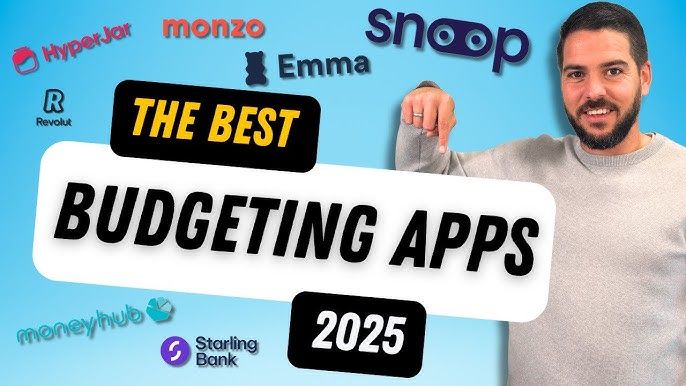

In today’s digital age, managing personal finances has become easier than ever with the help of sophisticated budgeting apps. Let’s learn more about this topic below with Word Search as we explore the most effective money management applications available in 2025.
Mint continues to dominate the budgeting app space with its comprehensive approach to personal finance management. The app’s greatest strength lies in its ability to automatically categorize transactions and provide real-time insights into spending patterns. Users particularly appreciate the customizable budget categories and the smart alert system that notifies them when they’re approaching their spending limits.
What sets Mint apart is its robust security features and seamless integration with virtually all major financial institutions. The app’s credit score monitoring feature has proven invaluable for users working to improve their financial health. The interface remains clean and intuitive, making it accessible even for those new to digital budgeting tools.
YNAB has revolutionized the way people think about budgeting with its zero-based budgeting philosophy. The app’s standout feature is its proactive approach to budgeting, encouraging users to allocate every dollar to specific categories before spending. Real users report significant savings within the first two months of consistent use, with some achieving their emergency fund goals faster than expected.
The learning curve may be steeper compared to other apps, but YNAB’s educational resources, including free workshops and an active community forum, provide excellent support. The subscription fee might seem steep, but users consistently report that the cost is justified by the money saved through better budgeting habits.
PocketGuard shines in its ability to identify potential savings in users’ recurring bills and subscriptions. The app’s “In My Pocket” feature calculates how much discretionary spending money is available after accounting for bills, goals, and necessities. This practical approach has helped users avoid overspending while maintaining realistic budgets.
The app’s bill negotiation service has proven particularly valuable, with users reporting significant savings on their monthly utilities and subscription services. The automated savings rules feature helps users build their emergency funds without actively thinking about it, making saving more accessible and consistent.
While Personal Capital offers basic budgeting features, its true strength lies in investment tracking and retirement planning. The app provides sophisticated portfolio analysis tools typically found in professional-grade software. Users particularly value the retirement planning simulator, which helps them visualize different scenarios and adjust their saving strategies accordingly.
The wealth management services, though optional, have received positive feedback from users with larger portfolios. The app’s ability to track investment fees and identify opportunities for optimization has helped many users reduce their long-term investment costs.
Read more: Quizlet App Review: Study Smarter, Not Harder
Goodbudget modernizes the traditional envelope budgeting system for the digital age. Users appreciate the visual representation of their spending categories and the ability to share budgets with family members. The app has proven especially effective for couples managing joint finances and teaching children about money management.
The debt payoff features have helped many users create and stick to realistic debt elimination plans. While the manual transaction entry might seem cumbersome, users report that this intentional process helps them become more mindful of their spending habits.
Designed specifically for couples, Honeydue addresses the unique challenges of managing shared finances. The app facilitates open communication about money through features like bill reminders, shared transaction notifications, and split expense tracking. Users report improved financial transparency and reduced money-related conflicts in their relationships.
The app’s chat feature allows partners to discuss specific transactions and financial goals within the app itself. The ability to maintain both joint and individual privacy settings has made it a favorite among couples with various financial arrangements.
Acorns combines everyday spending tracking with automated investing, making it ideal for those looking to grow their wealth while maintaining a budget. The round-up feature, which invests spare change from daily transactions, has helped users accumulate significant savings without feeling the impact on their daily spending.
The addition of retirement accounts and checking services has transformed Acorns into a more comprehensive financial platform. Users particularly value the educational content that helps them understand investing basics while building their portfolios.
Read more: Coursera App Review: Is It Worth the Investment?
When choosing a budgeting app, consider your specific financial goals and habits. For comprehensive money management, Mint remains the top choice for most users. YNAB is ideal for those seeking a more structured budgeting approach, while PocketGuard works best for those focusing on reducing expenses. Couples might find Honeydue or Goodbudget more suitable for their needs.
Remember that the best budgeting app is the one you’ll actually use consistently. Most of these apps offer free trials, so take advantage of these periods to test different options before committing. Consider factors like ease of use, integration capabilities with your existing accounts, and whether the features align with your financial goals. Regular engagement with your chosen app, combined with a commitment to financial discipline, will lead to better money management and achievement of your financial objectives.